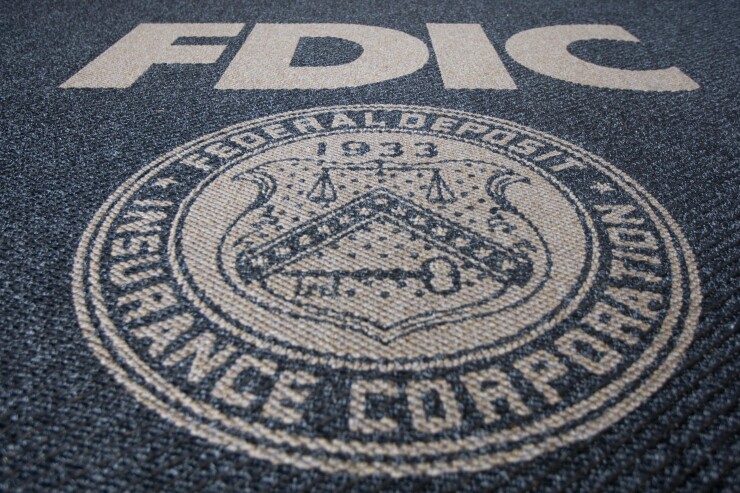WASHINGTON — The Federal Deposit Insurance Corp. warned banks that it will consider enforcement actions if the banks it supervises are repeatedly charging "nonsufficient-funds" fees for the same transaction.
On Thursday, the FDIC issued guidelines that said banks that charge multiple NSF fees on the same unpaid transaction could be violating the Federal Trade Commission Act, which prohibits "unfair or deceptive acts or practices."
While NSF fees are similar to overdraft fees, they are somewhat different. Overdraft fees, which consumers have to "opt in" to, are levied when banks cover purchases for customers when they don't have enough in their account, while NSF fees are charged when a check bounces or a debit card purchase is declined.

"During consumer compliance examinations, the FDIC has identified violations of law when financial institutions charged multiple NSF fees for the re-presentment of unpaid transactions," the agency said. "The FDIC found that some disclosures provided to customers did not fully or clearly describe the institution's re-presentment practice, including not explaining that the same unpaid transaction might result in multiple NSF fees if an item was presented more than once."
More than half of the nation's 20 largest commercial banks, including Citigroup and PNC, have stopped charging nonsufficient-funds fees, and another four are scheduled to end the practice by year-end. That leaves three holdouts: SVB Financial, Huntington and MUFG Union Bank.
Charging the fees could be deceptive if "disclosures do not adequately advise customers of this practice," the FDIC said. The charges could be unfair if they occur in a short period of time without the opportunity for customers to put enough money in their accounts, according to the agency.
The FDIC said that eliminating NSF fees, declining to charge them more than once on the same transaction or reviewing policies relating to the charges could help mitigate the risks of supervisory or legal action.
The agency will "evaluate appropriate supervisory or enforcement actions, including civil money penalties and restitution, where appropriate," it said.






